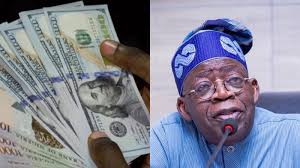Joseph Irikefe
Nigeria’s national debt which has been rising at a very terrible speed is set to hit N107 trillion as Tinubu administration starts to commences drawing from the $7.8 billion and 100 euro approved for it in December 2023 by the Nigerian Senate.
President Bola Tinubu’s administration on Saturday said Nigeria had secured a single-digit interest loan worth $2.25 billion from the World Bank.
He said the package offers a 40-year term with a 10-year moratorium and a nominal 1 percent interest rate.
Wale Edun, the Minister of Finance, made this known in Washington DC, the United States during a press briefing at the end of Nigeria’s activities at the World Bank/International Monetary Fund Spring meeting.
He said Nigeria has qualified for “a total package of $2.25 billion,” which he described as the “closest you can get to a free lunch.”
Saying it is “virtually a grant,” Edun added that the loan is “for about 40 years, 10 years moratorium and about 1 per cent interest”.
He said Nigeria will also benefit from budgetary support and “low-interest funding from the African Development Bank,” adding that there are “ongoing discussions with foreign direct investors across many sectors.”
According to data from the Debt Management Office (DMO), the total public debt in Nigeria is an estimated N97.34 trillion ($108.23 billion) as of December 2023.
This figure was an increase of 146% from N39.56 trillion ($95.77 billion) at the end of the previous year.
The major reason for the significant increase is the addition of CBN’s N20 trillion ($48 billion) in Ways and Means lending to the government and about 60% devaluation of naira.
The federal and state governments owe a combination of domestic and foreign debts. Domestic debt is made up of FGN securities, treasury bills, and more recently, CBN’s Ways and Means. On the foreign scene,
Nigeria owes countries like China, France, Germany and Japan (bilateral debts) and multilateral institutions like the World Bank, International Monetary Fund (IMF), Islamic Development Bank (IsDB) and the African Development bank (AfDB).
The Senate in December 2023, approved President Bola Tinubu’s request to borrow $7.8 billion and €100 million as part of the Federal Government’s 2022-2024 borrowing plan. According to Tinubu, the Federal Executive Council under former President Muhammadu Buhari approved the loan facility on May 15, 2023, to finance infrastructure, health, education, agriculture, insecurity, and other sectors.


